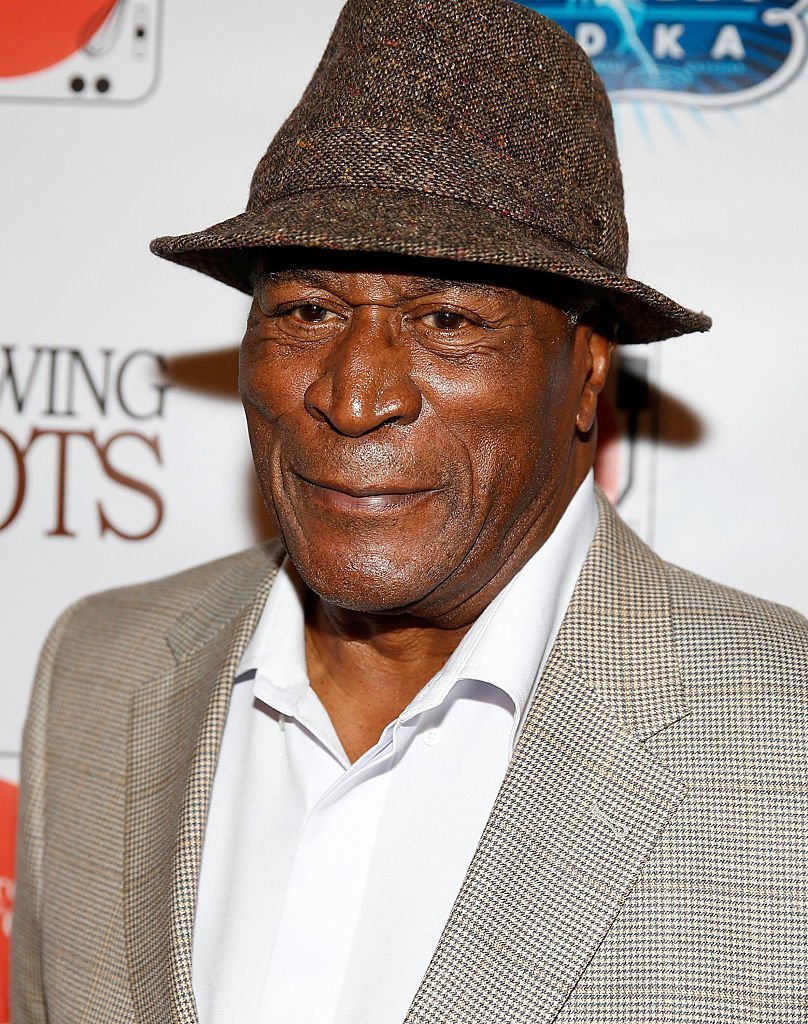MONROVIA – John Amos, the famous African-American actor, could not vividly describe what it means to blacks in the United States the quest of their fore-fathers to find liberty and what it means for Liberia to celebrate 200 years of the actualization of that quest.
In a very emotional voice, he told FrontPageAfrica, “I don’t know if I can accurately describe what it means to come home after being deprived of your history, after being deprived of everything that you love and you know and you’ve been told all your life that you have no country, you have no roots.”
He spoke to FrontPageAfrica upon arrival at the Roberts International Airport over the weekend for the kickoff of the Bicentennial Celebration. The celebration marks 200 years since freed slaves in the United States of America in their pursuit for absolute liberty and a true identity chose to find a new home in Africa – and Providence Island became their new settlement. Their settlement on the Providence Island in 1821 later led to the political establishment of Liberia as a sovereign nation in 1847.
For Mr. Amos, a frequent visitor to Liberia since the ’70s, this country is his home. “When I did the program Roots, I used my Liberian experience, I used my Liberian love for the food, for the people, for everything that happened to me to build the character,” he said.
He said though the director of the miniseries tried to stop him from using Liberian accent during the making of the miniseries, he insisted that Liberia is a country that truly identifies with the history of freed slaves and had given him a personal experience, increased his love for Africa and helped him rediscover himself.
“It’s hard for me to describe how grateful I am, I’m appreciative that God has seen it fit for me to come home once again… I’m so glad to be part of the celebration, to be able to see it – 200 years of freedom, thank God,” he said.
The American actor who also starred in Coming to America 1 & 2 said, he is the first in his family to come back to Africa to identify with Africans. He has been coming to Liberia since ’70s and ’80s before the coup.
“I’m the first in my family to make it back to Africa – the very first one. All these generations of my family, I’m the first one to make it back and I intend to come back time and time again and to bring my children and grandchildren so that they’ll know they have a country where they have roots, where they have connections and people that love them for themselves,” he said.
The Liberian accent trouble
Sharing a hilarious experience that brought him close to death in Liberia back in the ’80s, Mr. Amos said during his stay in the country at the time, he spoke like a typical Liberian so that he could better blend with the indigenous people.
He said, while out with a friend having beer, a gentleman walked to him with a machete, mistaking him for a security guard who had once mistreated him.
“He said to me, ‘I know you, you’re the same guy who mistreated me at Bomi Hills, now, I’m coming for your head.’” According to Amos, he immediately dropped his Liberian accent and began to speak like an American, “No you got the wrong guy”.
He then identified himself using his California Driver’s License and identified himself as an actor. The machete man immediately recognized him and offered him more beer, he said.
So, who is John Amos?
John Allen Amos Jr. (born December 27, 1939) is an American actor known for his role as James Evans, Sr., on the CBS television series Good Times and for his portrayal of the adult Kunta Kinte/Toby in the 1977 miniseries Roots, for which he received an Emmy nomination. Amos’s other television work includes The Mary Tyler Moore Show, a recurring role as Admiral Percy Fitzwallace on The West Wing, and the role of Washington, D.C., Mayor Ethan Baker in the series The District. Amos has appeared on Broadway and in numerous films in his five-decade career. He has been nominated for a Primetime Emmy Award and an NAACP Image Award. On film, he has played numerous supporting roles in movies such as The Beastmaster (1982), Coming to America (1988), Die Hard 2 (1990) and Coming 2 America (2021).
Originally published by Front Page Africa






